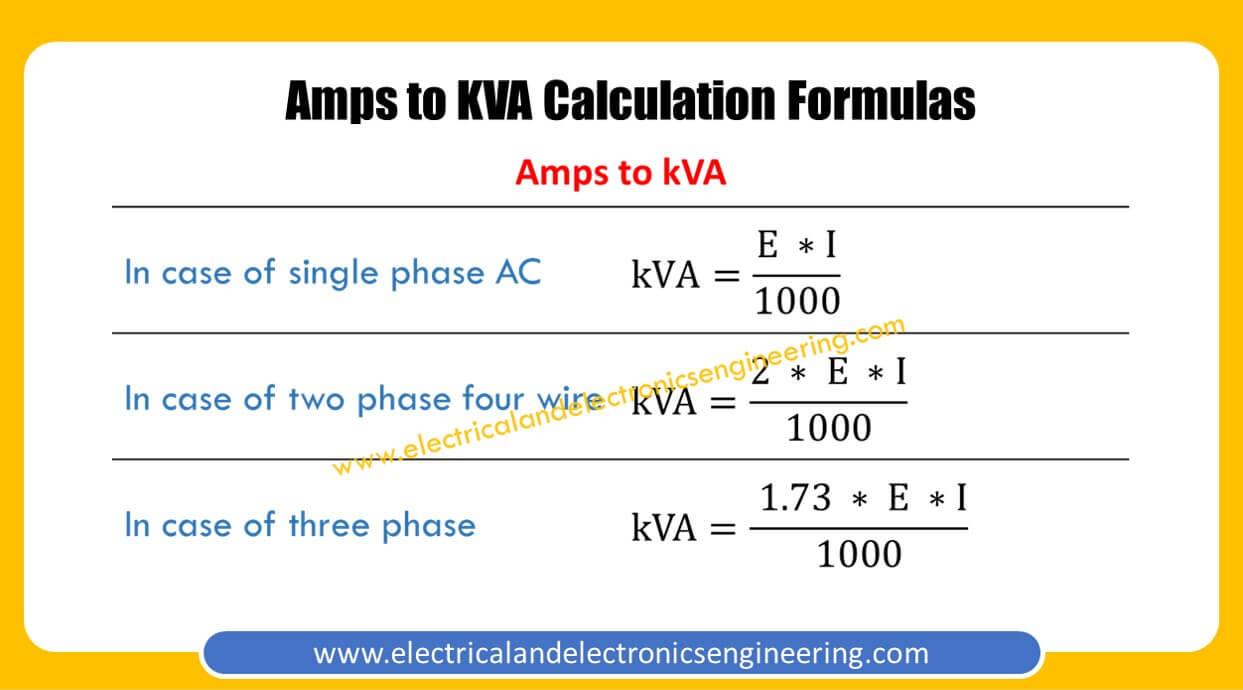
Amps to kVA Conversion Formula Electrical and Electronics Engineering
How to Convert Amps to kVA Before we go over how to convert amps to kVA, we need to cover some basic terminology. An Amp (A), short for Ampere, is a standard unit to measure the electrical current flowing in an electrical circuit. A current of 1A is equivalent to a rate of flow of charge of 1 coulomb in 1 second.
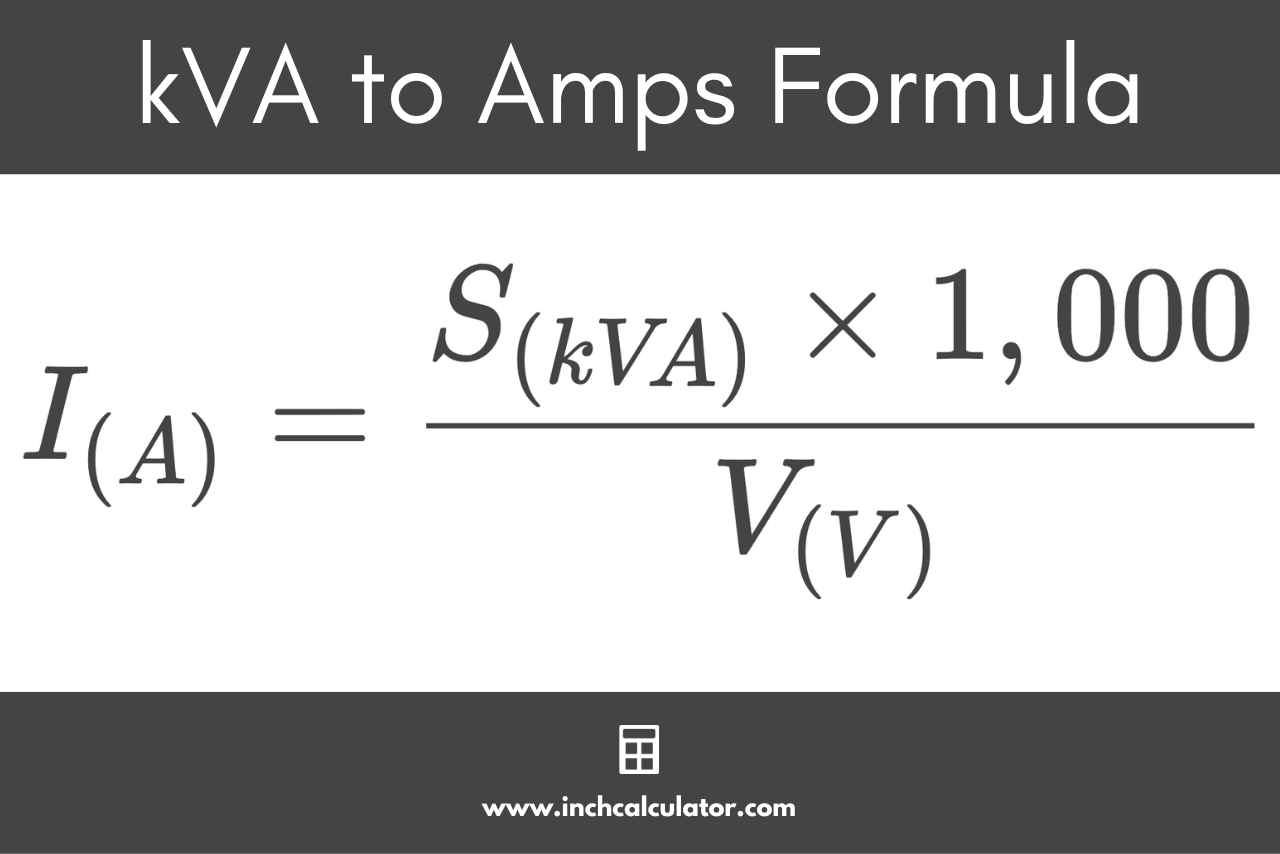
KilovoltAmps (kVA) to Amps Conversion Calculator
What is the purpose of the kVA to amps calculator? See also Amps to kVA calculator Amps to kW calculator Amps to volts calculator Amps to Watts Calculator Capacitor Symbols Decibel-milliwatt (dBm) Decibel-Watt (dBW) Diode Symbols Electric Charge Electric Current Electric Power Electrical Resistance Electrical symbols Electrical Units

KVA TO AMP CONVERSION! AMP TO KVA CONVERSION YouTube
First, determine the total current (amps). Next, determine the total voltage (volts). Next, gather the formula from above = kVA = I * V / 1000. Finally, calculate the kVA from Amps. After inserting the variables and calculating the result, check your answer with the calculator above.

How to find Amps from KVA ? How to Convert KVA to Amps in Generator Asad Electrical YouTube
Kilovolt-amps, abbreviated as kVA, is the typical unit of measure for what is called apparent power.Apparent power is the amount of electrical power produced by an electrical system at a particular applied voltage and current. Following the Ohm's law formula, we can obtain the amount of electrical power by multiplying the amount of voltage by the current flow through any electrical system.
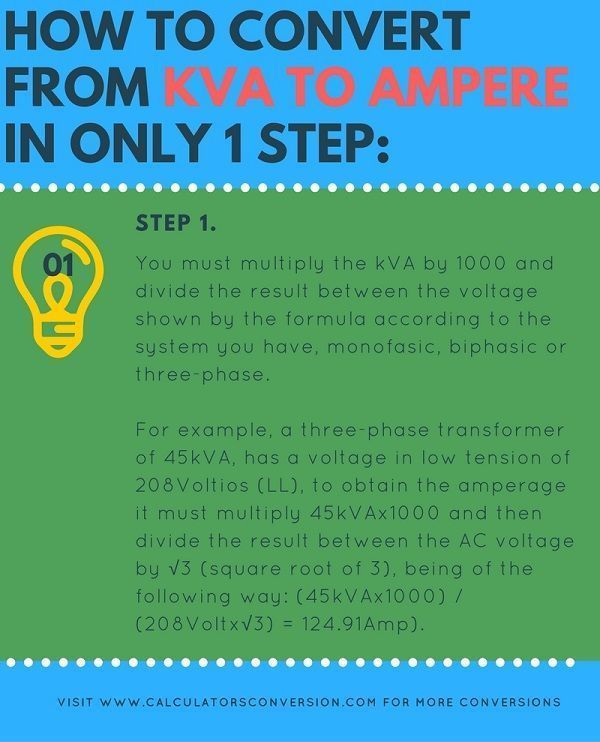
kVA to Amps Calculators, formula, chart, convert and transformer free.
Calculation of Single phase amps to kVA S (kVA) = I (A) x V (V) / 1000, which means that the apparent power in Kilovolt-amps is calculated by multiplying the current in amps with the voltage in volts and dividing the results by 1000. Calculation of three phase amps to kVA Line to Line Voltage
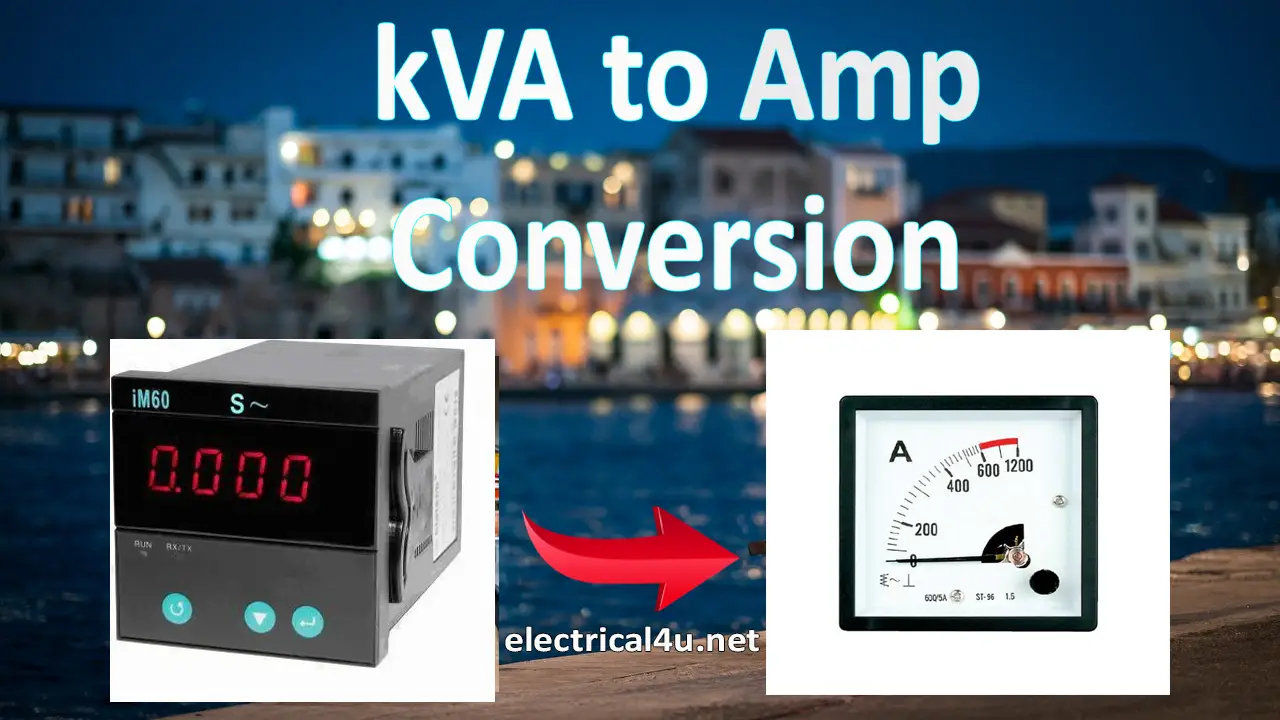
kVA to Amp Conversion Calculator A to kVA Online Electrical4u
Amps: Voltage: Calculate kVA kVA: S(kVA) = I(A) × V(V) / 1000 The apparent power S in kilovolt-amps (kVA) is equal to the phase current I in amps (A), multiplied by the RMS voltage V in volts (V), divided by 1000. 3 phase Amps to kVA calculation Line to line voltage Phase 1 Amps: Phase 2 Amps: Phase 3 Amps: Line-to-Line Voltage: Calculate kVA
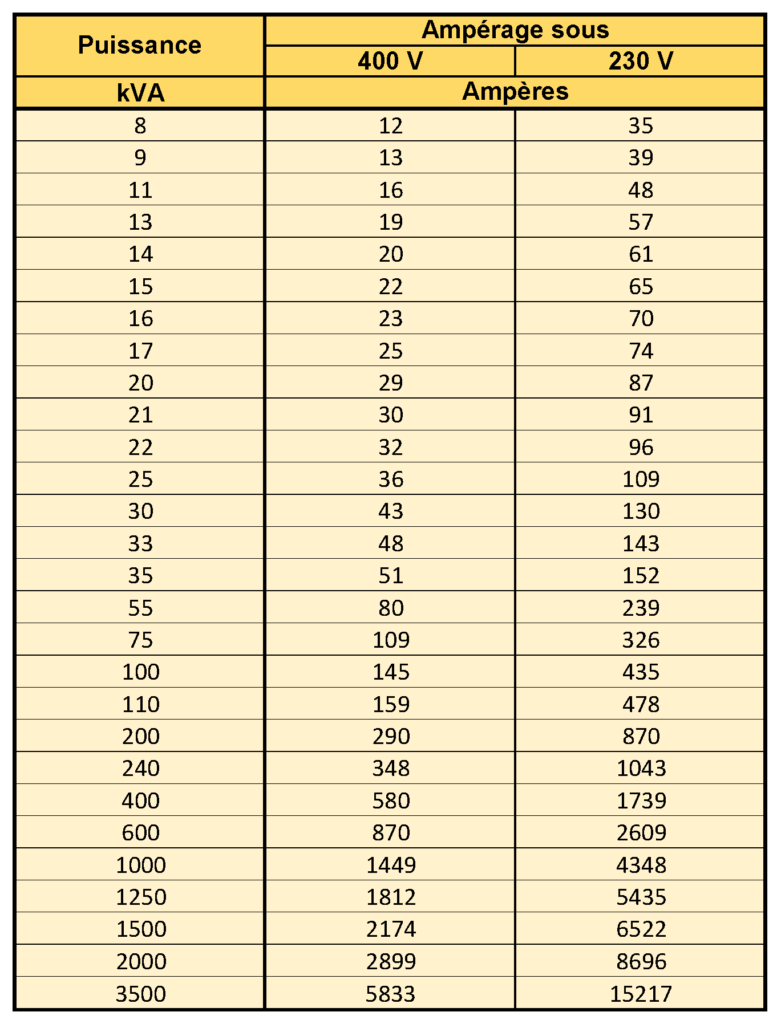
CONVERSION kVA Ampères BD Consult Energie
The formula to convert Amperes (Amps) to Kilovolt-amperes (kVA) is as follows: kVA = (Amps * Volts) / 1000 Where: kVA is the Kilovolt-amperes, Amps is the current in Amperes, and Volts is the voltage in Volts. This formula takes into account the current and voltage and calculates the apparent power in kVA. Example
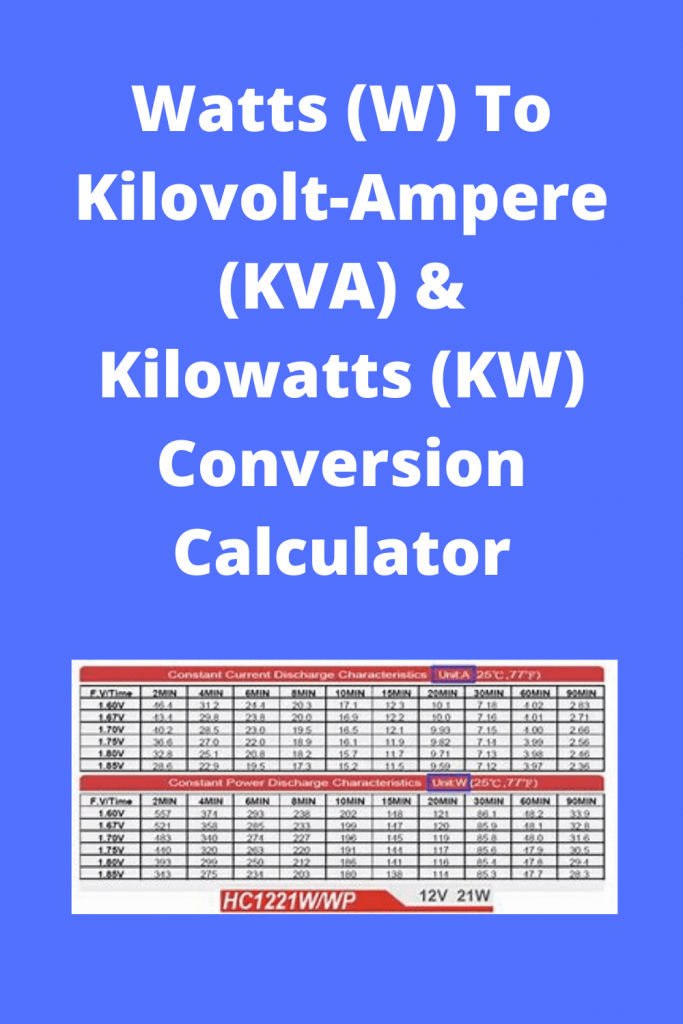
Convert Kva To Kw slide share
Amps are a measure of electrical current in a circuit. In order to convert from kVA to amps, we'll also need the RMS voltage of the circuit, and then we can use the formula for power Kilovolt-Amps to Amps Formula The formula to convert kVA to amps is: [1] I (A) = S (kVA) × 1,000 V (V)

☑ Convert Capacitor Calculator
We assume the power factor to be of the value 0.9. Firstly, rewrite the initial watts to amps formula into the amps to watts equation: P = 3 * V * PH * I, As long as all of the values have desired units, simply input them into the formula: P = 3 * 100 V * 0.9 * 15 A = 4050 W, The outcome can be expressed as: "15 amps to watts, for the VLN equal.
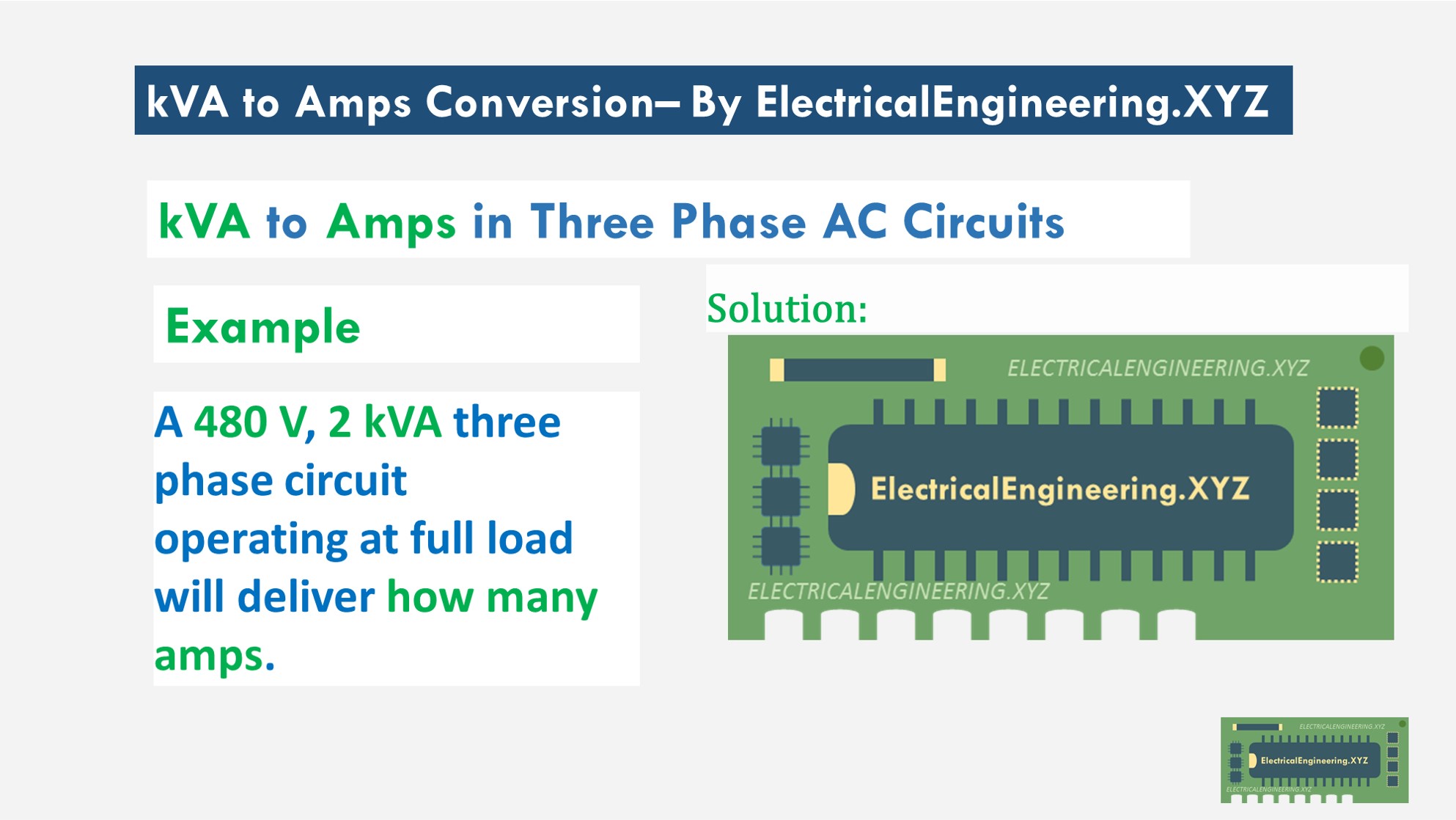
kVA to Amps Conversion Formulas for Single, Two, and Three Phase AC Circuits [Video]
Formula for Converting Single-Phase Amps to kVA. The apparent power S in volt-amps is equal to current I in amps, times the voltage V in volts: S(kVA) = I(A) × V(V) / 1000. For example, let's find the apparent power in kVA for 230-volt circuit with 50 amps of current.
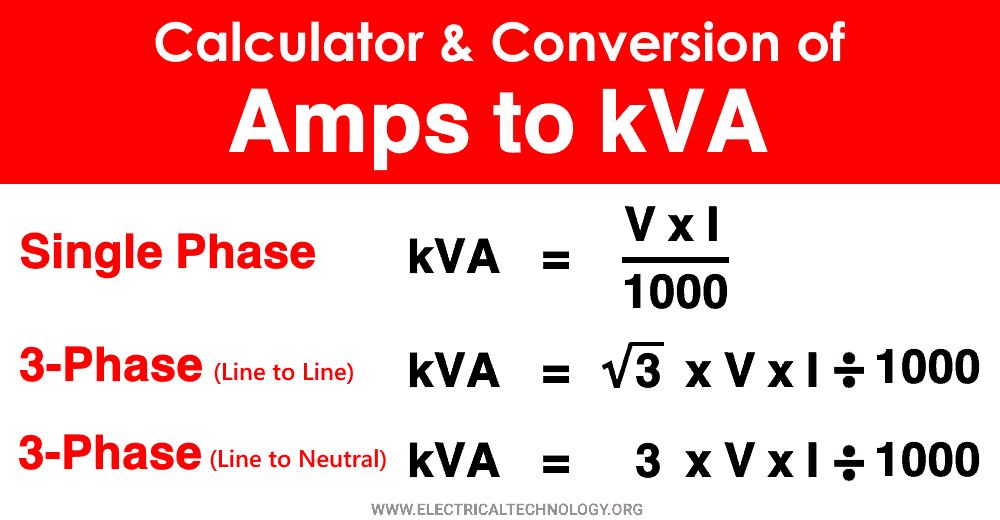
Calculadora De Amperios A KVA ¿La Forma Correcta De Convertir Amperios A KVA? Electrositio
Three-phase amp to kVA Calculation formula. The above formula used in single-phase power system, but for 3 phase amps to kVA conversion we need to use below formula. For three-phase Amps to kVA conversion is simple, it is three times the per phase apparent power. Below three-phase apparent power formula, we get. S(kVA) = 3 × I(A) × VL-N (V.
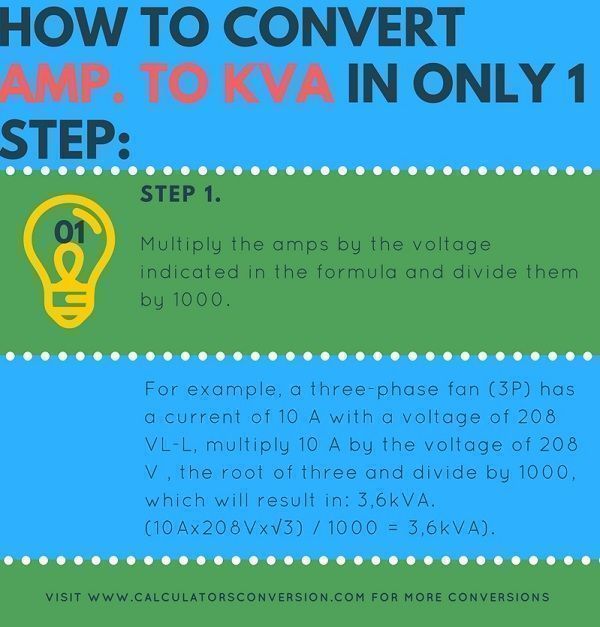
Amp to kVA conversion calculations for transformer and generator free.
The key question kcmil wire size chart (which is the same as MCM wire size chart) answers is how many amps can a wire handle. The ampacity (how many amps they can carry) of wires depends on 3 primary factors, namely: Cross-section. This is denoted by kcmil or MCM. We have 250 kcmil, 300 kcmil, 350 kcmil, 400 kcmil, 500 kcmil wires, and so on.
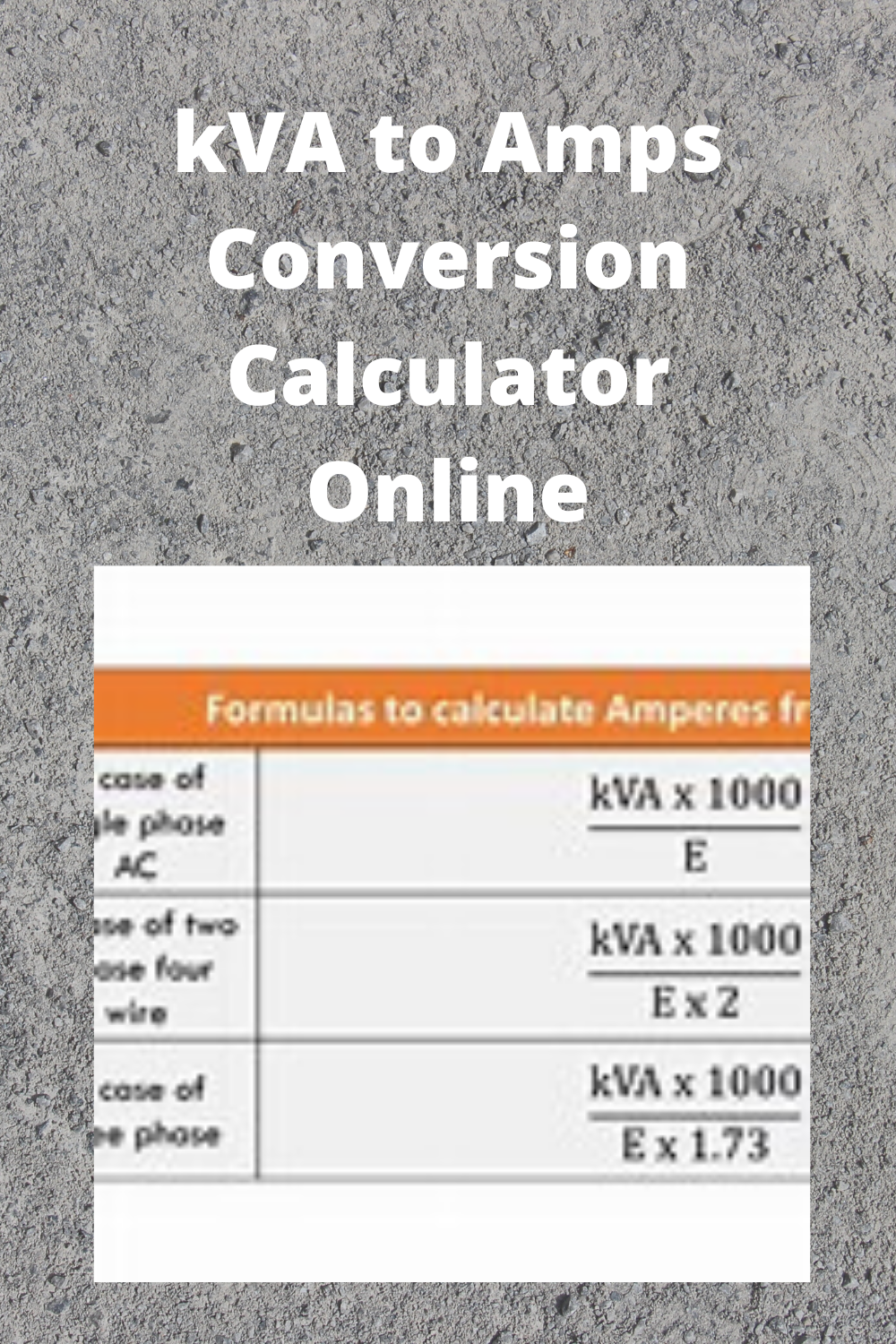
kVA to Amps Conversion Calculator Online Easy Rapid Calcs
Step 1: Multiply the amps by the voltage indicated in the formula and divide them by 1000. For example, a three-phase fan (3P) has a current of 10 A with a voltage of 208 VL-L, multiply 10 A by the voltage of 208 V , the root of three and divide by 1000, which will result in: 3,6kVA. (10Ax208Vx√3) / 1000 = 3,6kVA).
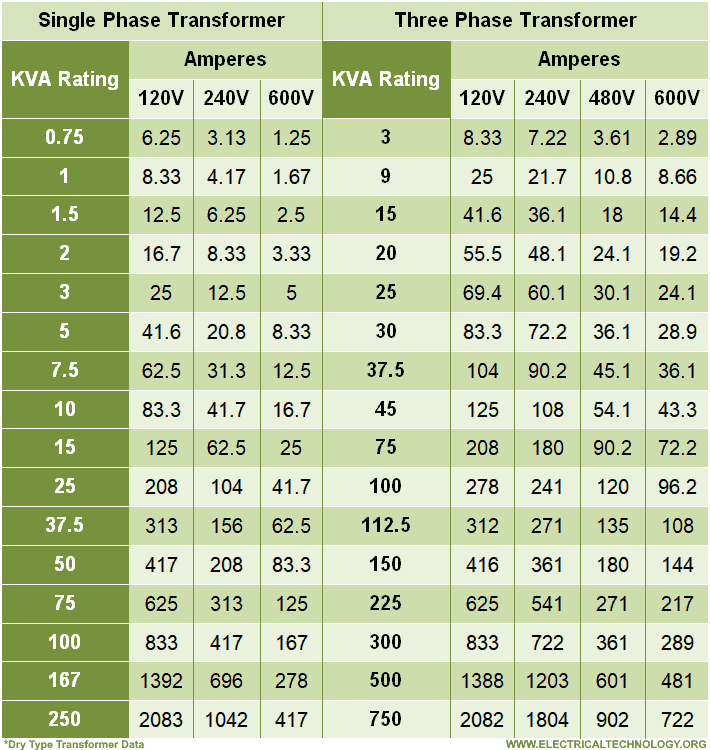
30 KVA Transformer Amps Chart
To calculate the kVA rating of a machine from the amperage rating, just enter the value of current in amperes, voltage in volts, select power supply system ( single phase or three phase) and hit the "Calculate" button to the get the result of apparent power in kVA, VA, mVA and MVA. Related Calculators:

20 KVA में कितना Amps होता हैं Kva = Amps How many Amps in 20 KVA Kva to Amp Formula YouTube
To calculate the amps, we have to use the kVA formula: I (Amps) = S (VA) / V (Volts) S stands for apparent power; the very thing that is measured is Volt-Amperes (VA). Essentially, you might have already figured out that Volt-Ampere is equivalent to a Watt (1 W = 1 A*V = 1 AV).

KW to KVA & Watts Conversion Calculator Online Generators Zone
It is a conversion calculator which converts Kilovolts-amps (kVA) with the voltage in volts to amps (A). To get the current amps, you will begin by selecting the phase which can be either a single phase or a three phase. Enter the kilovolts-amps followed by the volts in the same order.